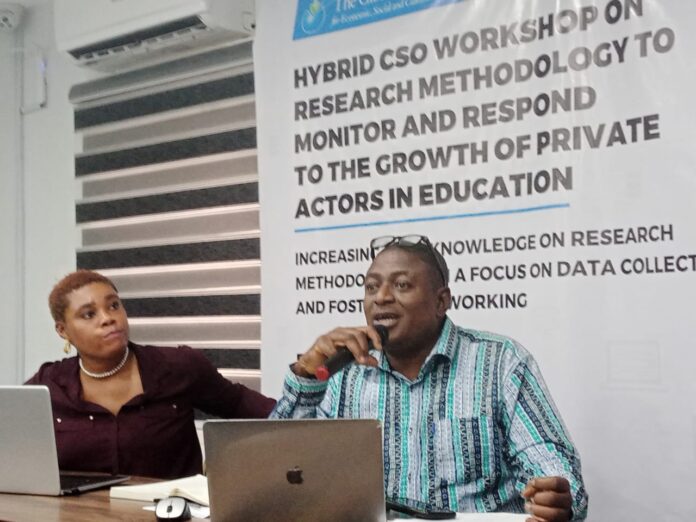African governments have been urged not to abandon their responsibilities in the public education sector to private investors.
This was the crux of the agreement of Civil Society Groups across Africa at a hybrid workshop held yesterday in Lagos.
The workshop hosted by the Global Initiative for Economic, Social and Cultural Rights (GI-ESCR) and the Corporate Accountability and Public Participation Africa (CAPPA), decried the takeover of the education sector by the private sector all over the continent.
The workshop which was held at CAPPA office in Ogba, Lagos, was designed to train Civil Society Organisations (CSOs) on research methodology to monitor the growth of private actors in the education sector.
Apart from the physical presence of those in Lagos, there were participants from Liberia, Kenya and Uganda.
The Executive Director of CAPPA, Mr Akinbode Oluwafemi, in his address said research was an important aspect of advocacy because it helps to get to the real cause of a problem as well as provide the right kind of solution.
According to him, “Research is important because it makes what we are doing credible. Policymakers call us noisemakers. But we make noise for a purpose. So, when we add research to what we are doing, they take us seriously.”
He criticized the idea of allowing the private sector to take over the administration of education while the government surrenders its responsibility to them. He faulted the use of public funds to support privately established educational institutions, saying, “The public education is not working and the government is supporting private actors with funds that are supposed to be committed to financing public schools.”
Another participant, Johnstone Shisanya, Programme Manager, East African Centre for Human Rights, Kenya, called on CSOs to embark on research as a way to aid their engagements with the government.
He said it is important to hold the state to account for the huge funds available to them for public education.
On his part, Anderson Miamen, National Coordinator, Coalition for Transparency and Accountability in Education, Liberia noted that advocacy should be based on evidence because it would help to promote inclusion and transparency.
In the same vein, Mugoya Musa, Programme Officer, Initiative for Social and Economic Rights in Uganda, said in his country, the private actors have not contributed positively to the education sector, because they are mostly inaccessible, low in quality with minimal funding to deliver the right kind of education.
He said, “Access is a major concern as a majority of these schools are established in urban settlements where the population is high, thereby disconnecting people in rural communities,” adding that “ private actors are looking at benefitting from the government,” as some schools do not have adequate classrooms.
The workshop was moderated by Aya Douabou, of GI-ESCR, and Zikora Ibeh of CAPPA.


